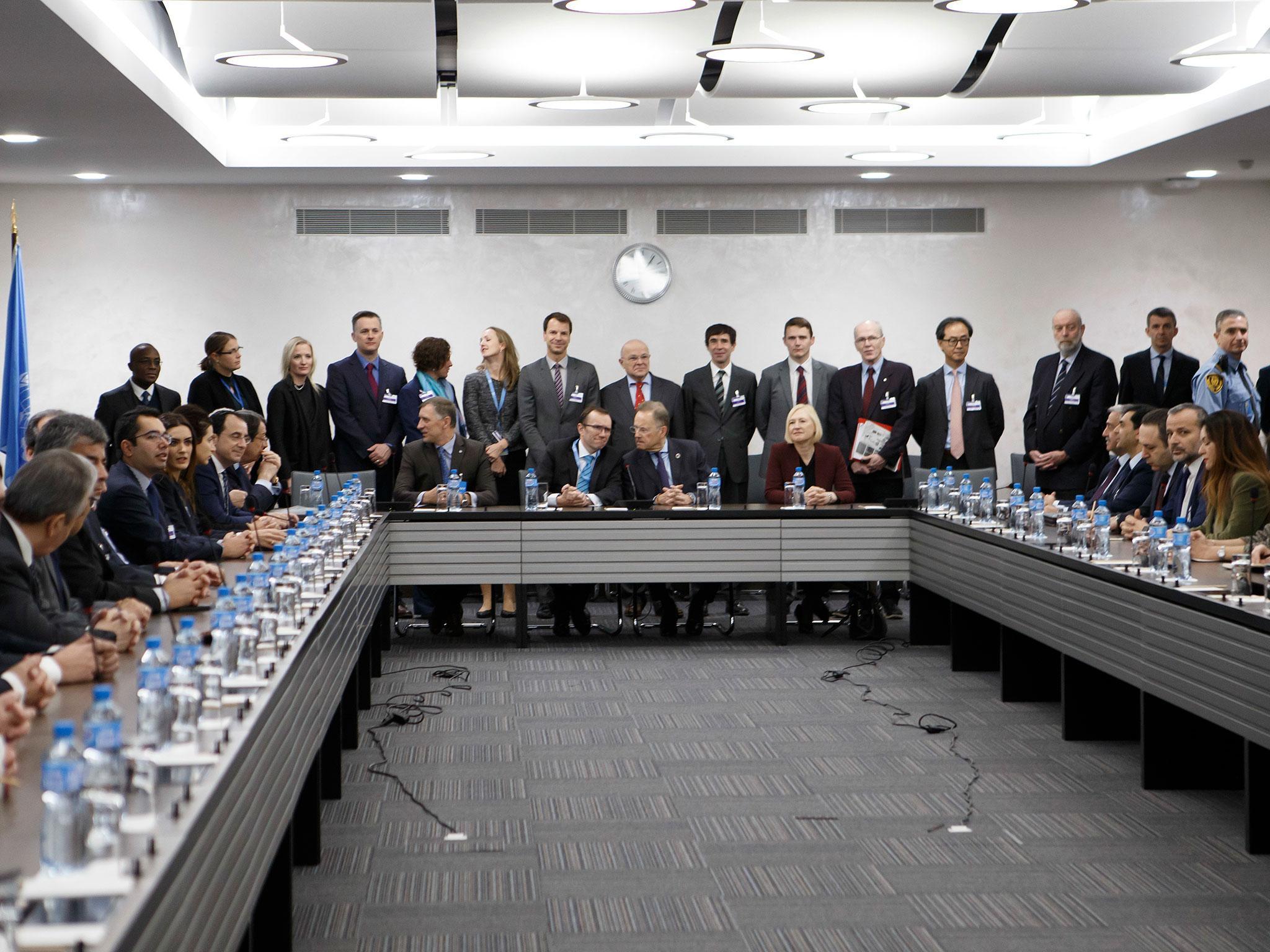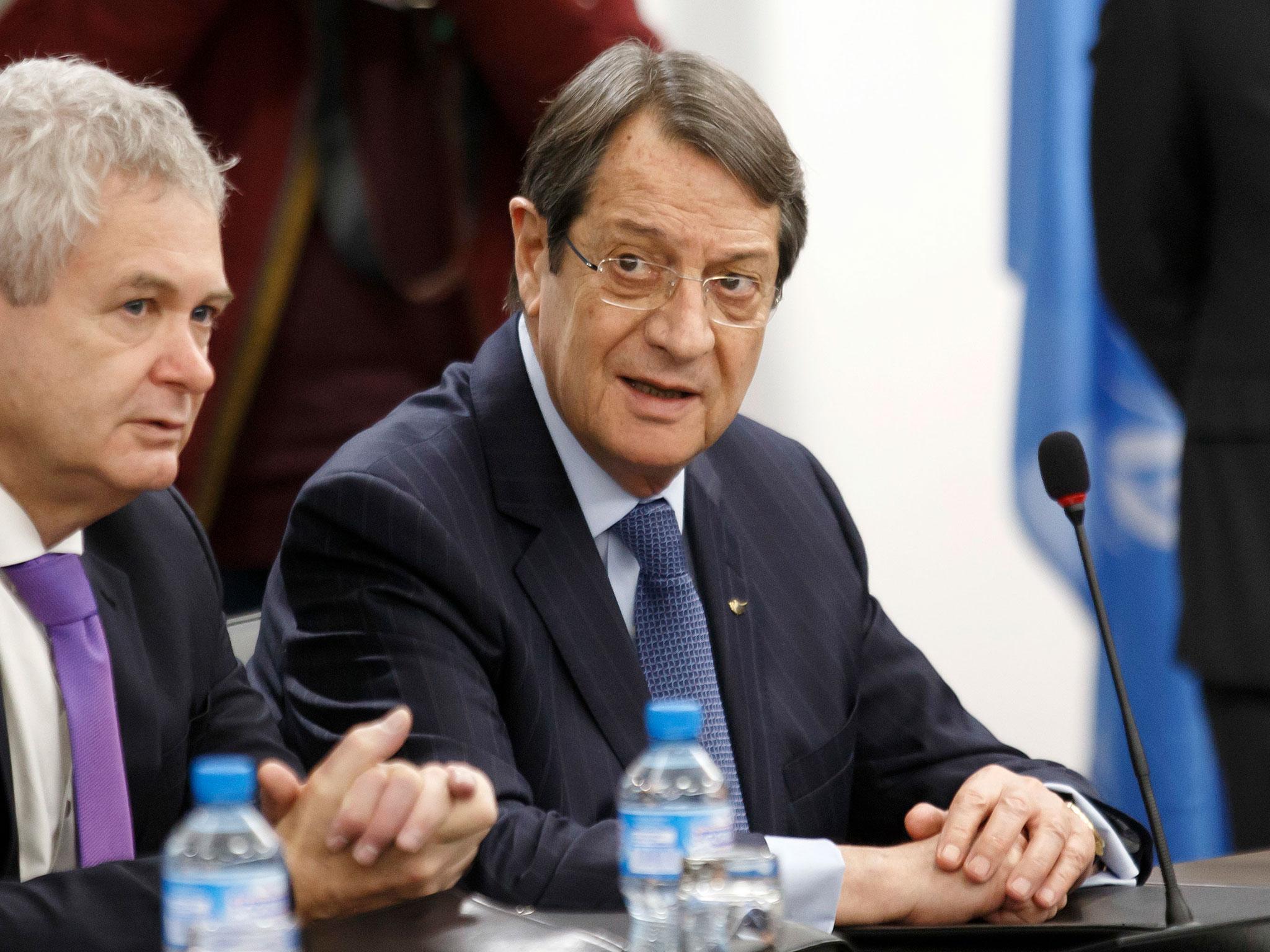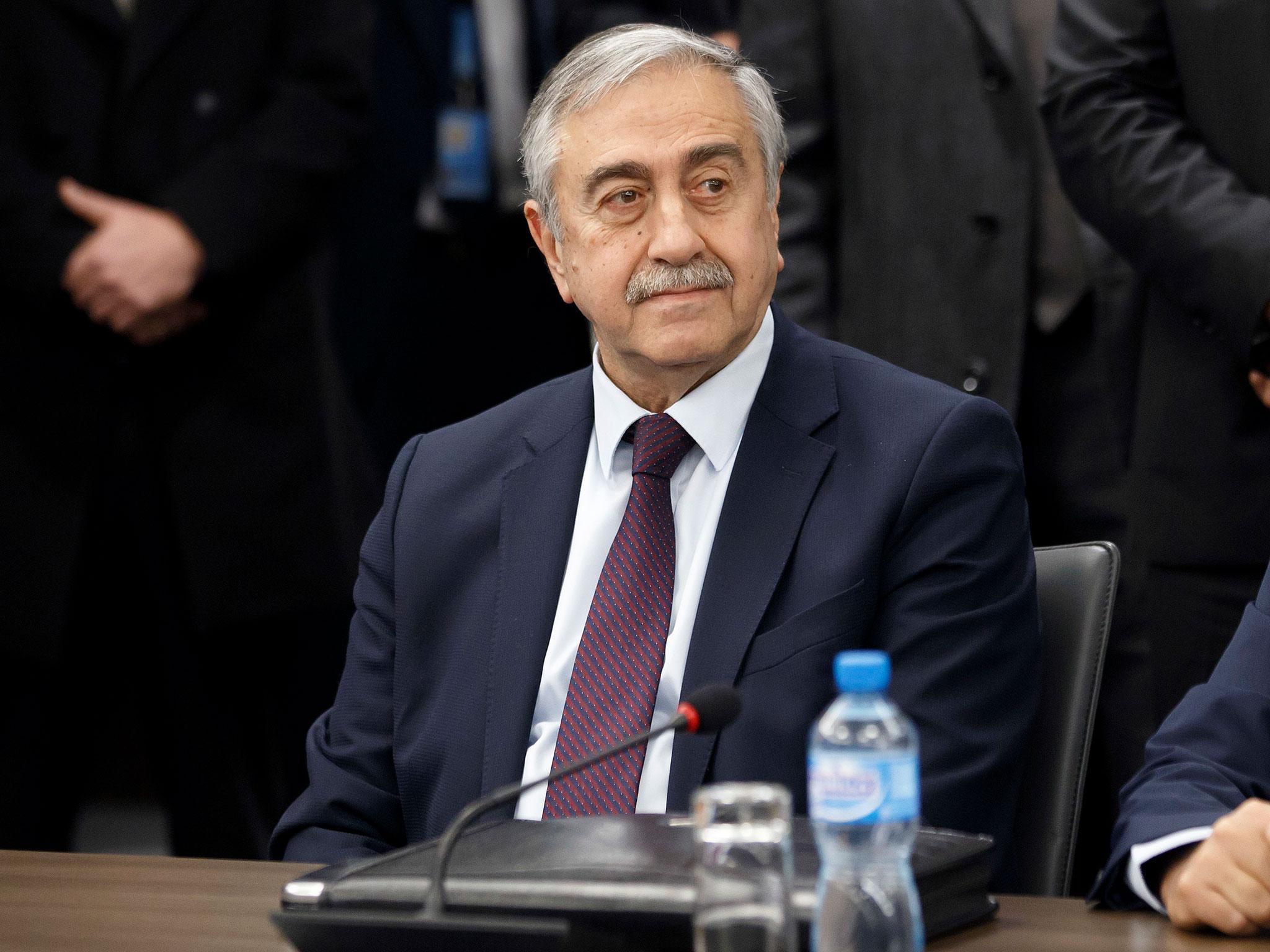Cyprus reunification: Greek and Turkish leaders of divided island enter final stages of peace talks
Greek Cypriot leader Nicos Anastasiades and Turkish Cypriot leader Mustafa Akinci will meet at the United Nations in Geneva this week

Your support helps us to tell the story
From reproductive rights to climate change to Big Tech, The Independent is on the ground when the story is developing. Whether it's investigating the financials of Elon Musk's pro-Trump PAC or producing our latest documentary, 'The A Word', which shines a light on the American women fighting for reproductive rights, we know how important it is to parse out the facts from the messaging.
At such a critical moment in US history, we need reporters on the ground. Your donation allows us to keep sending journalists to speak to both sides of the story.
The Independent is trusted by Americans across the entire political spectrum. And unlike many other quality news outlets, we choose not to lock Americans out of our reporting and analysis with paywalls. We believe quality journalism should be available to everyone, paid for by those who can afford it.
Your support makes all the difference.The Greek and Turkish Cypriot leaders of Cyprus are entering into a week of intensive talks in an effort to reach a peace deal and end 43 years of division on the island.
Greek Cypriot leader Nicos Anastasiades and Turkish Cypriot leader Mustafa Akinci will meet at the United Nations in Geneva on Monday with the hope of thrashing out the final terms of reunification, following 19 months of talks.
Secretary-General Antonio Guterres has described the conference as an “historic opportunity” for a breakthrough for reunification of the island, which has been attempted more than once in previous decades.
Mr Akinci warned that he was expecting a difficult week. “We must be cautious. We are not pessimistic, but I see no need for exaggerated expectations that everything will just happen. We are expecting a difficult week ahead,” he said.
Cyprus became independent from British rule in 1960, and was divided in 1974 after Turkey invaded the island, following a Greek-backed coup that had intended to unite it with the rest of Greece.
The conflict led to a boarder separating two sides of the island, with Turkish Cypriots controlling 36.5 per cent of the island’s land mass backed by more than 35,000 Turkish troops deployed in the north.
Around 165,000 Greek Cypriots are estimated to have fled the north following the division, with around 45,000 Turkish Cypriots escaping the south. A Turkish Cypriot declaration of independence is recognised only by Turkey.


Mr Guterres is expected to attend the conference on Thursday, along with Greek prime minister Alexis Tsipras and Turkish president Recep Tayyip Erdogan. Britain’s foreign secretary Boris Johnson will lead the UK’s delegation at the conference, though Prime Minister Theresa May could join the talks on the day.
Ensuring security for both Greek and Turkish Cypriots once an aimed-for federation is established is a key issue. Many Turkish Cypriots feat they may be overwhelmed by the majority Greek Cypriots in the future, and have insisted that the 30,000 Turkish troops stationed in the island’s north remain. This has been opposed by the Greek side, who say the troops should be pulled out, stating that as Turkey is not part of the EU it should not have a military presence on Cyprus, which is an EU member state.
Other issues leaders hope to resolve include how much territory the Greek and Turkish federal zones would control and the reclamation of property and land of those displaced by the conflict.
Any agreement from this week’s conference will then need to be put to separate referendums within the Greek and Turkish communities on the island. The last time Cyprus voted on reunification in 2004, the majority of the Turkish north voted in favour of the peace deal, though the Greek south rejected it.
Additional reporting by agencies
Join our commenting forum
Join thought-provoking conversations, follow other Independent readers and see their replies
Comments